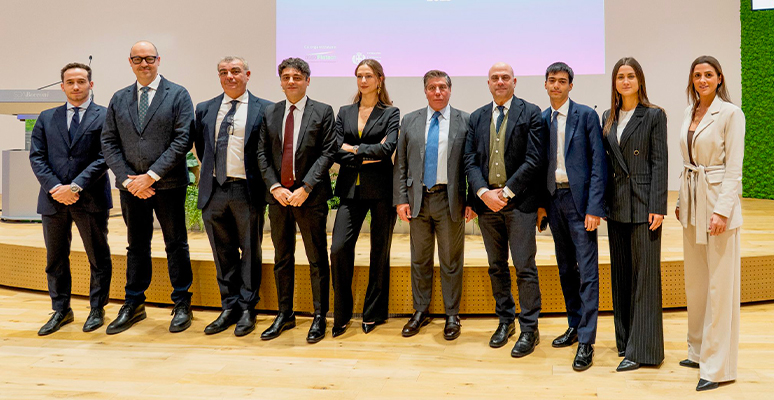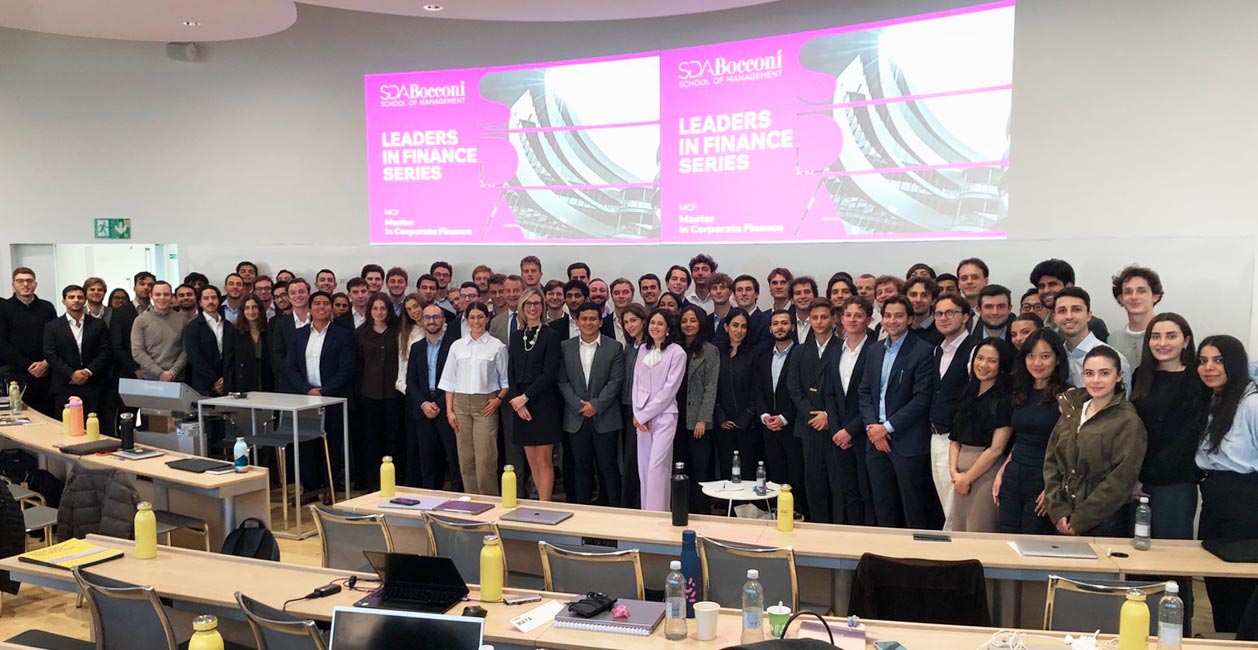
- Start date
- Duration
- Format
- Language
- 3 Dec 2025
- 3 Days
- Class
- Italian
Acquisire competenze su finanziamenti, business plan e valutazione avanzata delle startup per concepire, lanciare e far crescere nuove imprese.
Philippe Donnet, Assicurazioni Generali SpA’s Group CEO, was one of the protagonists in the EMF Leader Series, the Executive Master in Finance led by Andrea Beltratti, Academic Director and Alessia Bezzecchi, Program Director. During his meeting with the 2021 EMF class, Donnet stated that his studies had been very important in determining his professional journey. The French Ecole Polytechnique, which has a scientific, military and sports focus, provided him with key knowledge to understand the world and to have an impact on it through leadership development. A leader needs a team just as a team needs a leader. Studying mathematics, practicing sports and following a military discipline were all essential elements in his development.
Professional career. Philippe Donnet’s career has been spent entirely in the insurance sector, as he proudly underlined several times during the Leader Series. He immediately captivated his public by giving a crucial piece of advice right at the beginning of the meeting: “Getting to know your profession is the most important thing. You can learn by doing various jobs within that profession. I started selling policies, then I began coordinating teams, while getting international experience at the same time.” Donnet landed his first top job in Italy, at Axa, where he became CEO Italy in 1999. The link with our country remained strong, even after this experience was over, and Donnet was back in Italy in 2013 to join Assicurazioni Generali, where he was in charge of country Italy, the most important in the Group. “In my opinion the three key factors for growth have been, firstly the opportunity to start with an operational role that allows for a specific understanding of how the corporate engine works; secondly developing a leadership journey, and, thirdly the opportunity to move in an international context.” All this immersed in an ongoing desire to learn: the manager studied the mathematical foundations of the actuarial practice attending an executive course early in his career. A message that rang loud and clear in the minds of the participants in the Executive Master in Finance.
Insurance and banking. “Some think that banks and insurance companies are gradually converging. What is your opinion?”, Beltratti asked. “I do not agree with this hypothesis. In my view, banking and insurance companies are two very different kinds of intermediaries. This is because of several elements such as accounting rules and especially the reversed cost-revenue cycle in the insurance industry. Another significant difference concerns risk models: the insurance business is very careful in assessing the risks it takes, while banks are more inclined to risk-taking with clients, in the hope they will be able to satisfy payments. Convergence may rather be with asset management, for big insurance groups are increasingly managing their clients’ assets.”
The challenges for the global insurance industry. “The present zero or negative interest rates significantly complicate the business model of all financial intermediaries, and also of insurance companies. Great help in this situation came to me from past experience. I was the CEO of a Japanese company about 15 years ago and I saw and understood what it means to run an insurance company in a zero-interest-rate environment. Certainly, at this historical stage of the market, insurance companies need to change the allocation of their investments, especially in the Life segment, partly because of products sold many years ago that yield a guaranteed 2-3% return. But asset allocation doesn’t necessarily have to take on more risk: as patient investors, insurers can acquire real, private assets and get a liquidity premium.” “What about the other challenges?”. “Technology is more of a transformative element than a challenge, and the insurance sector has been slower than others from this point of view. Covid-19 has been a strong accelerator since it forced everybody to find remote working solutions in a matter of days, avoiding a transition we would have had all the same but would have taken years.”
Finance and sustainability. “The core 2021 EMF theme is sustainable finance. When discussing this during our interactive lectures and in meetings with the companies that have been following the training project for years, we ask ourselves how finance can be a key element in the strategy and sustainability of all companies and therefore of the economy as a whole. In your opinion, is sustainability a relevant element in the insurance sector?” – this question by the EMF Academic Director brought up a topic that the CEO is particularly concerned about. And the answer was very clear: “Companies that do not understand the need for sustainability are destined not to grow and will disappear in the next few years. Finance must be sustainable and consider the social impact of all the activities it finances and those in which it invests. Gone are the years when finance was associated only with making profits. Finance is about enabling a fair sharing of the value created in the economy.”
Leadership. “Corporate leaders must know how to make their team play, working with them to build the ethical values needed to develop a common purpose. Leadership is increasingly important when business models are changing: no leadership, no change. But, as I learned in the military, discipline is important too: teams work on mechanisms that need to be complied with in order to reach the best result. Leaders should spend a lot of time listening to their team. It is sometimes challenging to find a way to meet your people at the end of the day and talk about their problems, even personal ones; but this is an essential job and part of a leader’s duties.”
What advice do you feel like giving to the participants in the Executive Master in Finance? “First of all, I would like to share with them how proud I am to work in the finance industry. Finance is made up of people, and people can decide to change things. You are the future leaders of finance, and sooner or later you are going to have power: don’t be afraid of using it to improve our society, promote diversity and move the world forward in ways that are truly sustainable. Second, I urge everybody to directly follow or start an entrepreneurial experience, which reminds us of how the world really works, and what difficulties our clients encounter every day. Third, pay attention to people, human values, their talents and skills.”
SDA Bocconi School of Management

Acquisire competenze su finanziamenti, business plan e valutazione avanzata delle startup per concepire, lanciare e far crescere nuove imprese.

Il corso intende fornire tutte le competenze necessarie a padroneggiare e applicare i principali strumenti e framework esistenti in materia di sustainability reporting.

Comprendere e gestire le variabili rilevanti negli investimenti immobiliari come convenienza economica e strutturazione del finanziamento bancario dei progetti.

